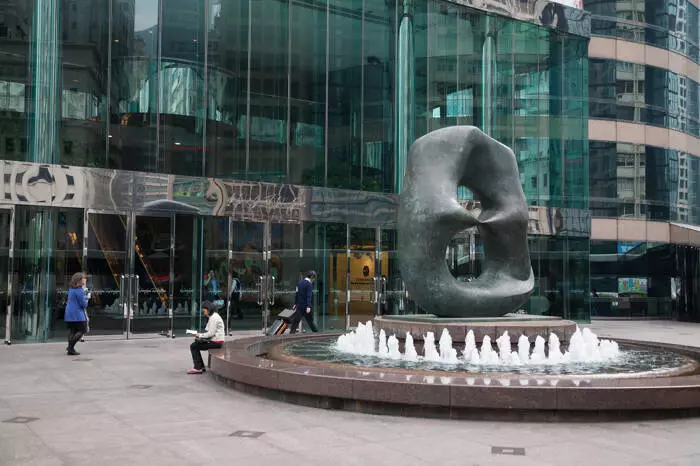As global markets adapt to a complex blend of political dynamics and economic indicators, the Hang Seng Index’s recent performance reveals the intertwining of local and international factors impacting investor sentiment. With its latest decline of 0.41%, marking a four-week losing streak, analysts have begun to examine the implications of rising geopolitical tensions and fluctuating technological markets.
The anticipation surrounding the U.S. presidential election on November 5 has significantly influenced market performance, particularly regarding the potential re-election of Donald Trump. As the gap between Trump and his main competitor, Kamala Harris, continues to narrow in the polls, investors are increasingly concerned about the possibility of renewed trade tensions. Trump’s historical approach to tariffs, particularly towards Chinese imports, could markedly affect the Chinese economy and, by extension, markets closely linked with it, such as those in Hong Kong.
Such political uncertainties invariably translate into market volatility, and the Hang Seng Index’s latest figures underscore this risk. The tech sector is at the forefront of these fluctuations, experiencing a notable downturn. The Hang Seng Tech Index (HSTECH) fell by 1.19%, reflecting broader trends seen in the Nasdaq equity index, as major players like Alibaba and Tencent saw their stock prices decline by approximately 0.37% and 0.36%, respectively.
A Mixed Bag for Technology Stocks
Interestingly, while tech giants struggle, Baidu managed to outperform with a noteworthy increase of 1.49%. This anomaly raises questions about the resilience of certain tech stocks amid widespread downturns. Baidu’s rise highlights the diverse capabilities and market responses within the tech sector; meanwhile, the persistent decline of firms like Alibaba and Tencent may indicate broader market concerns about growth sustainability in an increasingly complex regulatory environment.
Shifts in governmental policy, particularly related to technology regulation and trade, will likely require investors to remain diligent in monitoring not just performance metrics but also political signals that might impact future volatility.
In stark contrast to technology stocks, the real estate sector exhibited optimism, notably with the Hang Seng Mainland Properties Index (HMPI) rallying by 4.80%. This surge stems from positive sentiment regarding the Chinese government’s policy measures, which aim to stabilize the property market amid external pressures from U.S. tariffs. It underscores the capacity for some sectors to thrive despite widespread market challenges—essentially providing a safe haven for investors amid uncertainty.
Conversely, the commodity market exhibited mixed results, with iron ore prices experiencing a drop of 2.72% and gold also falling by 0.41%, despite its previous peak of $2,790. This indicates potential overreliance on perceived safe-haven assets, which may not provide the expected security in volatile environments.
However, oil prices showed resilience, with WTI Crude ending the week on a high note. Investors appeared to factor in geopolitical tensions, particularly related to ongoing conflicts in the Middle East, which historically influence crude prices. Such factors illustrate the interconnected nature of global events affecting commodity valuations.
Outlook for Global Markets
Turning towards the Australian stock market, the ASX 200 saw a decline of 1.13%, reflecting broader economic apprehensions influenced by faltering gold prices and an uncertain interest rate outlook from the Federal Reserve. With indicators suggesting potential rate adjustments, many investors chose to reevaluate their positions, particularly concerning high-yielding banking stocks.
On the other hand, the Japanese market exhibited slight growth, with the Nikkei Index appreciating by 0.37%, aided by political outcomes that shaped currency demand. The results of Japan’s recent election, which suggested hesitation in immediate rate hikes, shaped market perceptions positively, leading to modest gains for Nikkei-listed entities.
As we look ahead, significant events loom on the horizon, including upcoming interest rate decisions from the Reserve Bank of Australia, the U.S. presidential election results, and policy discussions at China’s National People’s Congress Standing Committee. These events promise to be pivotal in shaping market sentiments.
While Beijing’s potential stimulus measures may encourage investments in riskier assets, the undercurrents of hawkish central bank policies and political uncertainties from the U.S. will continue to test market resilience. Investors must navigate this complex terrain with a keen eye on how geopolitical developments and economic indicators interlace to inform their strategies moving forward.

